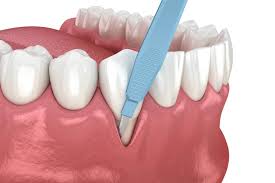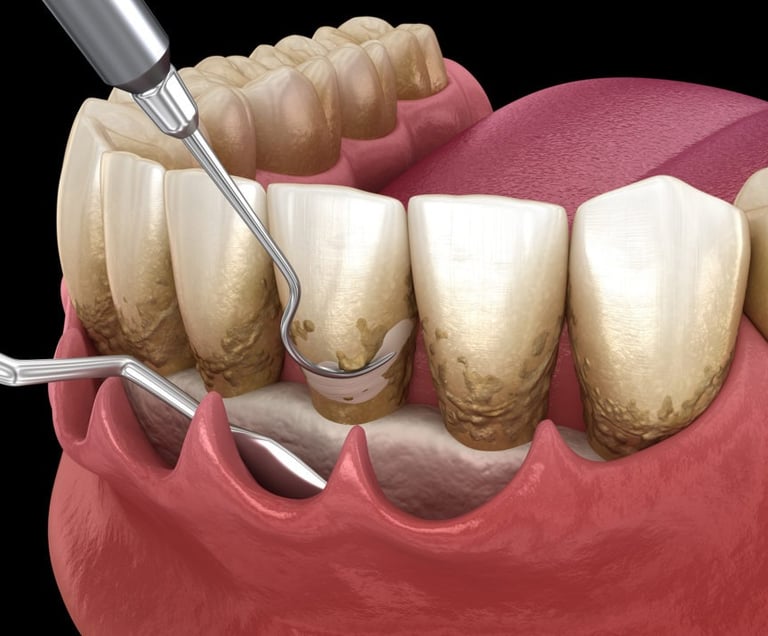Gum & Periodontal Surgeries
Periodontal flap surgery describes the state of-the-art techniques and most commonly used approach to the surgical treatment and plastic surgical repair of periodontal pockets. “Pocketing” is the end result of inflammation and infection that causes the loss of tissue attachment to the teeth, one common consequence of periodontal (gum) disease.


Before performing the procedure, the dentist will first evaluate your overall health to ensure you are fit for minor oral surgery. Once approved, a local anaesthesia is administered to gently numb the treatment area.
The periodontist then uses a small scalpel to carefully separate the gums from the teeth, lifting them to create a flap for better access. The tooth roots are thoroughly cleaned, and any infected or damaged bone is repaired. If needed, osseous recontouring is performed to smooth and reshape uneven bone defects for a healthier foundation.
After the cleaning and corrective steps are complete, the gums are repositioned snugly around the teeth and secured with stitches. This procedure helps restore gum health, prevent further infection, and support long-term dental stability.
Gum / Periodontics surgery procedure
Our periodontist will first remove all plaque and tartar (calculus) from around your teeth and make sure that your oral hygiene is good.
Gum Surgery Recovery
After the periodontal surgery, usually it takes only few days to recover. By following the homecare instructions completely, you can expect a speedy recovery from the gingival flap surgery. Our dentist will prescribe you pain killers to reduce the pain. It is important to keep your mouth clean during the healing period.
If you notice any of the following signs of gum disease
Tender, swollen, or red gums
Gums bleed during and after tooth brushing
Gum recession
Bad odor / halitosis or bad taste in the mouth
Food impaction in areas of deep pockets formed between teeth and gums
Loosening and shifting of teeth, or increase in spacing between teeth.
Abscesses (pus oozing from the gums)
Sensitivity or Pain in teeth due to exposure of the roots by gum disease


Schedule an appointment immediately
Founded in 2014, The Dental Hut, Airoli was established with a commitment to provide reliable, ethical, and comfort-focused dental care for every patient. Our clinic brings together modern technology, skilled clinical expertise, and a warm, patient-friendly approach — ensuring that every treatment is carried out with precision and trust.

SERVING AND CARING FOR YOU SINCE 2014
Address :
Plot no B/21, opp. Apple Hospital, Sector 7, Airoli, Navi Mumbai, Maharashtra 400708
Timings :
Monday to Saturday:
10:00 AM to 1:50 PM & 5:30 PM to 9:50 PM
Sunday: Closed
Phone :
+91 8451922257 / +91 8369910225
Quick Links
Home
About us
Treatments
Gallery
Blog
Contact
